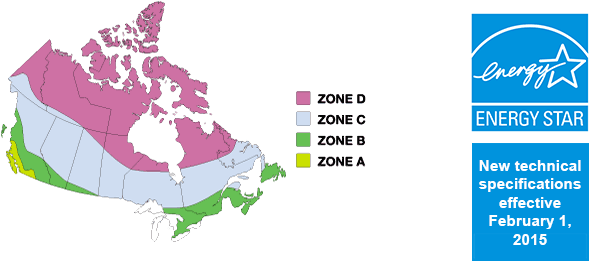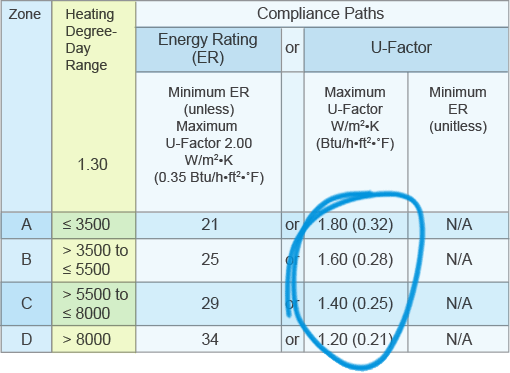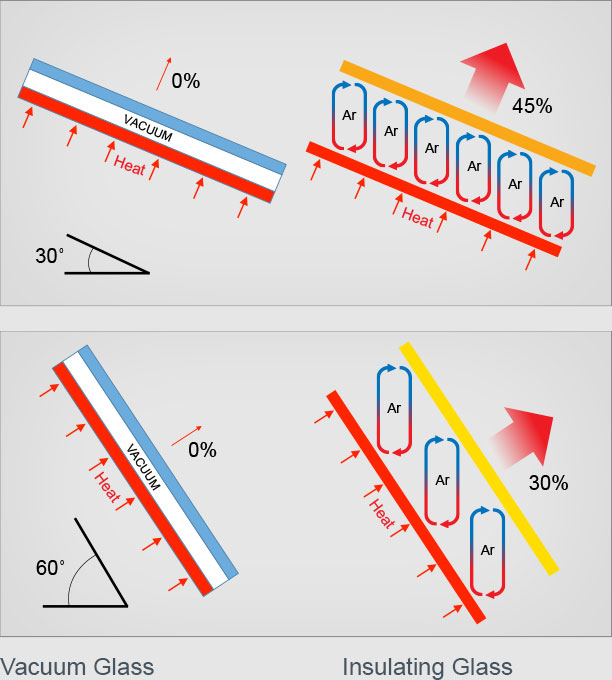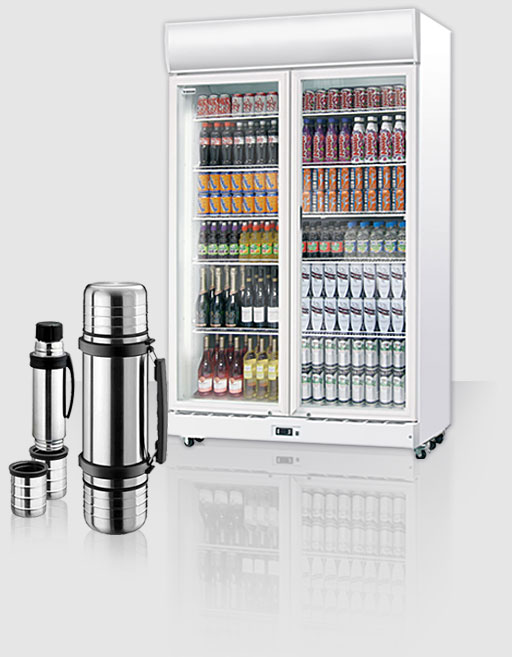






ICESUN Tempered Vacuum Glass effectively limits heat conduction, convection and radiation. Traditional insulating glass’s heat transfer coefficient U-Factor can be as low as 0.08 Btu/h·ft2·˚F; when installed on windows, it can be as low 0.12 Btu/h·ft2·˚F. The technical features of ICESUN glass well exceed Energy Star’s most strict glass quality standards, effective in 2015, for the Arctic regions. This kind of glass not only reduces energy consumption, but allows for greater overall glass usage on a building facade. This allows for bigger windows and more natural light approaching opaque building materials.
Test data from Tsinghua University (a world-class university in China) shows that homeowners can save 85% on energy costs when they use vacuum glass instead of single-glazed windows, 74% when they use vacuum glass instead of regular insulating glass windows, and up to 43% when they use it instead of Low-E argon insulating glass windows.
During cold winters, the heat-isolation effect should be very obvious. You won’t feel cold even when you are close to the window, so you will enjoy more use of interior space and indoor comfort during the cold weather.
Due to its excellent heat-insulation properties, the ICESUN Tempered Vacuum Glass used in buildings in Beijing provides savings of $1.34 per square foot per year over ordinary insulating glass. Since the weather is colder in US and Canada, the savings will only increase.

